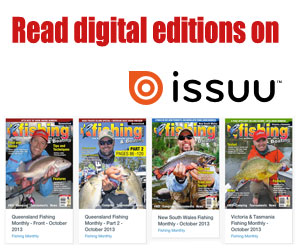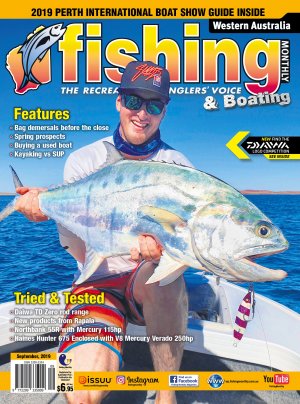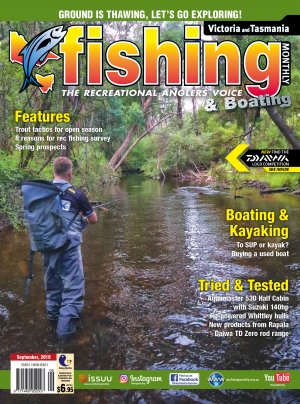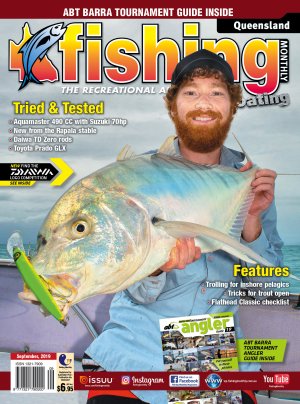Heading forward into 2016 and the disappearance of the wet, it will be interesting to watch the season unfold and adventurous anglers begin plying the waters with renewed vigour. With some descent falls throughout the Cape, especially around the mid-west coast, a few meter barra will begin to fill landing nets and camera lenses with a touch of luck.
March is an awesome month to be fishing run-offs, drains and freshwater sections or major river systems. Quite often the base flow will be consistent as water levels start dropping off. This provides greenish-brown water to many of the Cape’s rivers and typically excellent fishing for the few months of March, April and May.
March is the month of calendar shoots and trophy fish. It is the month we as writers and anglers can best portray our fisheries to a wider audience and ensure recreation fishing is seen as a positive thing on the wider stage.
It is also the time many of the commercial fishers do most of their netting in Cape York and catch most of their product for the year. Interesting developments with net free zones have begun to change the face of fisheries on Queensland’s east coast and I predict it will be just a matter of time before the traditional owner voice begins sounding a little louder with regards to net free zones in the Gulf of Carpentaria.
I watch with avid interest at the level of engagement recreational and commercial fishers have in the social and political media. Fisheries are big business for Australia and protecting our ever-dwindling resources in the face of ever- increasing populations is a challenge for present and future generations.
There is absolutely no point in exclaiming that we have the world’s best managed marine resources without also accepting there are ever-mounting pressures on these resources. Anglers need to be smart about how they make their choices and who they choose to speak up on their behalf. We need to be seen as environmental stewards among this user base and have a solid grounding for having done so.
Social media these days is acting as a correcting force for nonsense and the wrong ways of doing things. Bad habits and postings of piles of dead fish are usually called out pretty quickly. There is a self- governing force at work here. However there is also a widespread breed of anglers these days who forget that fishing from its very beginning, was grounded in the need or desire to catch fish for consumption.
This fact has a very real implication for fisheries and natural resource management. It presents a very real question. How do recreational fishers as a lobby group become known as both stewards of the marine environment and responsible end user of resources?
Up in Cape York, all this basically breaks down into a few simple considerations: How are closed seasons and restricted take zones managed? Is participation driving financial and social benefits to the wider community? In which locations are development and industry at odds with the marine environment? What about infrastructure and access? Does our perception of the health of aquatic ecosystems need to change?
Recognising what is at stake is foremost in the desire to protect something. This is why the great heartland of past fishing writers, photographers and naturalists have done wonders in bringing Cape York’s heritage values to life. People need to see the health, beauty and vitality of a place reflected through media before they will join in support for better management. I am happy to see this trend extend past traditional media, into social media and out into the wider world.
• For information on remote charter operations for tailored fishing adventures, please email Tim on --e-mail address hidden--
Reads: 1167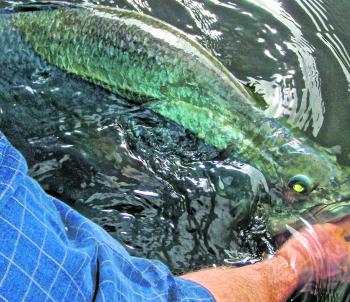
A lovely gleaming-eyed barramundi caught in the run-off.
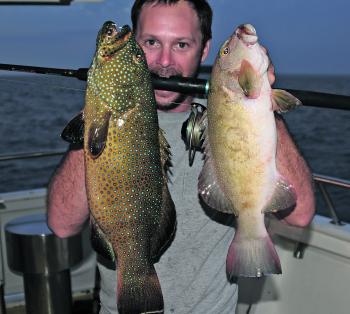
A pair of nice trout caught poppering at dusk around shallow reef.
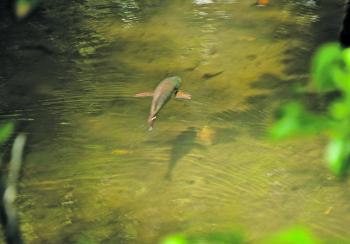
A lovely mangrove jack swims up a rainforest stream… the stuff dreams are made of.
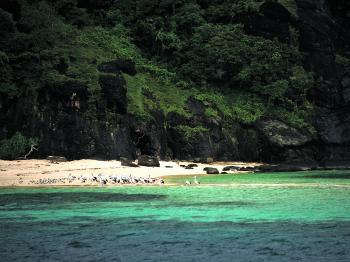
Fishing birds gathering on a remote beach – a common sight this time of year.

